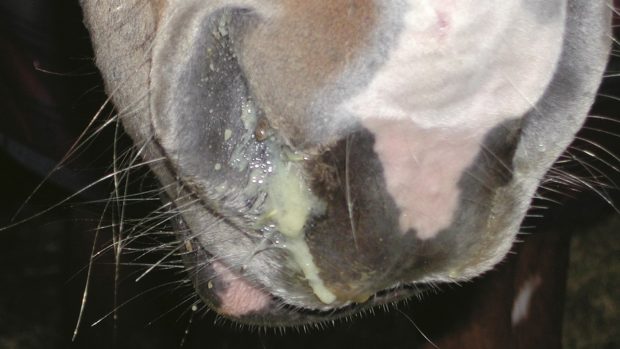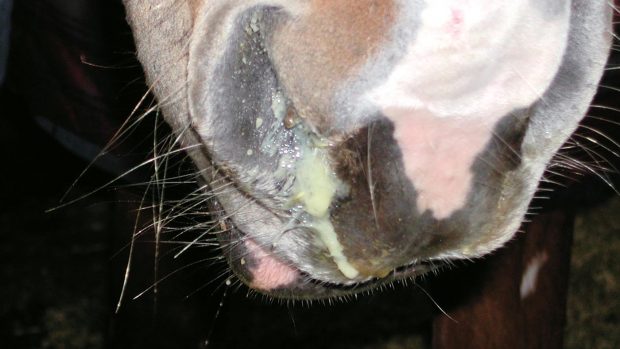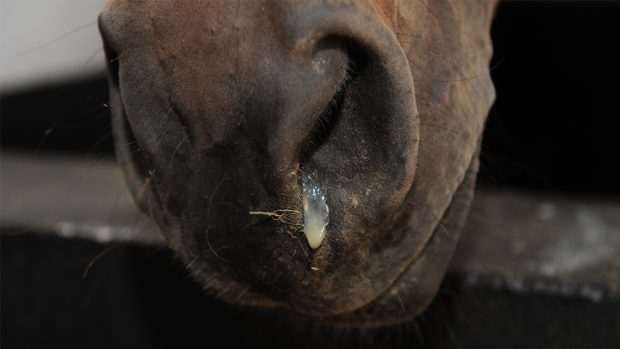Neurological equine herpes virus (EHV-1) brought hunting in part of the south- west to a halt for a week.
The Exmoor and the Devon and Somerset Staghounds (D&S) took a self-imposed break from 17-24 November, and the Dulverton West were on foot as H&H went to press.
The halt followed concerns that D&S joint-master Rupert Andrews’ horse had the potentially fatal virus, which affects the nervous system.
Mr Andrews learned his horse was clear on Friday (23 November).
The Exmoor resumed hunting on Monday and the D&S were due to go out on Tuesday (27 November).
“It’s a relief to know that its not EHV-1 and that we can hunt again,” said Mr Andrews. “We wanted to make sure we took no unneccesary risks.”
EHV-1 was confirmed on racehorse trainer Victor Dartnall’s yard in North Devon on 14 November.
Several of his horses have been put down.
Mr Andrews’ yard is four miles away and after a day with the staghounds on
10 November the master’s horse became weak in its back end — a sign of EHV-1.
The scare came a few days after British horse owners’ lax attitude to bio-security was highlighted at a welfare conference and calls were made for the government to tighten up imports and exports of horses in the UK.
“It is astonishing that we have not had a major outbreak of something nasty because our horses have virtually no resistance to exotic diseases [and] we have almost no bio-security in our yards,” Countryside Alliance president Baroness Mallalieu told the World Horse Welfare conference on 15 November.
The welfare conference also discussed the role the movement of low-value horses from Europe plays in the spread of disease.
Horse industry figures met Defra and representatives of the French and Irish governments on 14 November to discuss possible changes to the “tripartite agreement”.
The agreement was set up in the 1970s to allow racehorses to move between the UK, Ireland and France without a formal health certificate.
It was broadened to include all horses not destined for slaughter in 2005.
Cases of equine infectious anaemia (swamp fever) in Cornwall and Devon involved horses imported through France in 2008 and there are concerns that new diseases could enter the country in the same way.
The proposed changes to the tripartite agreement would mean only competition horses would move freely from the UK to France and back, all others would need veterinary checks.
A spokesman for Defra said discussions were ongoing.
This news story was first published in the current issue of H&H (29 November 2012)



